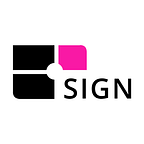Why use Blockchain for Document Certification?
We now live our lives increasingly online. We are not aware of it but there is a digital signature in all our online activities, requiring information to be sent back and forth. Blockchain technology has demonstrated the potential of transforming the way that online information is managed and stored.
While blockchain is most famous for its role in facilitating the rise of digital currencies, the same mechanism could just as easily be applied to other types of verification procedures.
Signature Chain utilizes Waves transaction ledgers to certify any important file and document. These decentralized ledgers keep records of verified transactions and protect the content with a powerful cryptography, that even a single character added or deleted from the document is sensitive to. This information are further organized into chunks of data called blocks that are irreversibly linked to one another in a “block chain”. Finally, identical copies are maintained across each member computer within a trusted transaction network.
Once a certification transaction is executed in a block chain network, the content cannot be forged, destroyed or reversed, and is therefore immutable. Decentralization and immutability are the key elements of these verified transactions linked in a chain, raising the bar for security, reliability and integrity of information.
Traditionally, the certification and verification process of important records are expensive, slow and are strongly dependent of multiple third parties. Disappointingly, the way that organizations and institutions process such has not changed for over 20 years. The execution of these transactions into the blockchain guarantees authenticity and security of documents, and definitely expeditious processing within a click of a button. It can potentially apply to any industry where information is transferred, or records must be kept — from registries to academics and healthcare.
If schools/ universities and hospitals certify every diploma and medical record into the blockchain network, almost anyone -whether it be an employer or an insurance company, can verify educational qualification and insurance claims accordingly.
The same applies for verification of proof of identity and personal records registered with a government e.g. birth, marriage and divorce certificates. Products of creativity are also prone to theft, poaching and plagiarism. Unfortunately, artists and musicians are often faced to fight for ownership of their work.
The security of information, simplicity of execution and the expedited processing provides an advantage if certified in the blockchain.
Imagine if every piece of property in a country is accounted and registered to an immutable blockchain registry, then governments could not as easily take land from someone just because a person did not have certain documentation to prove ownership.
The internet gave us the age of information. With blockchain technology, transactions stored cannot be altered, and any changes are time stamped and can be tracked through the path of origin. The technology has the potential to disrupt existing models, however the main goal is to raise operational efficiency where applicable.
Website: https://www.signature-chain.com/
Sign web app: https://www.sign-web.app/
Sign web app testnet: https://testnet.sign-web.app/
Twitter: https://twitter.com/SignatureChain
Telegram: https://t.me/SIGN_official
CoinMarketCap: https://coinmarketcap.com/currencies/signature-chain/
Binance INFO: https://info.binance.com/en/currencies/signaturechain
